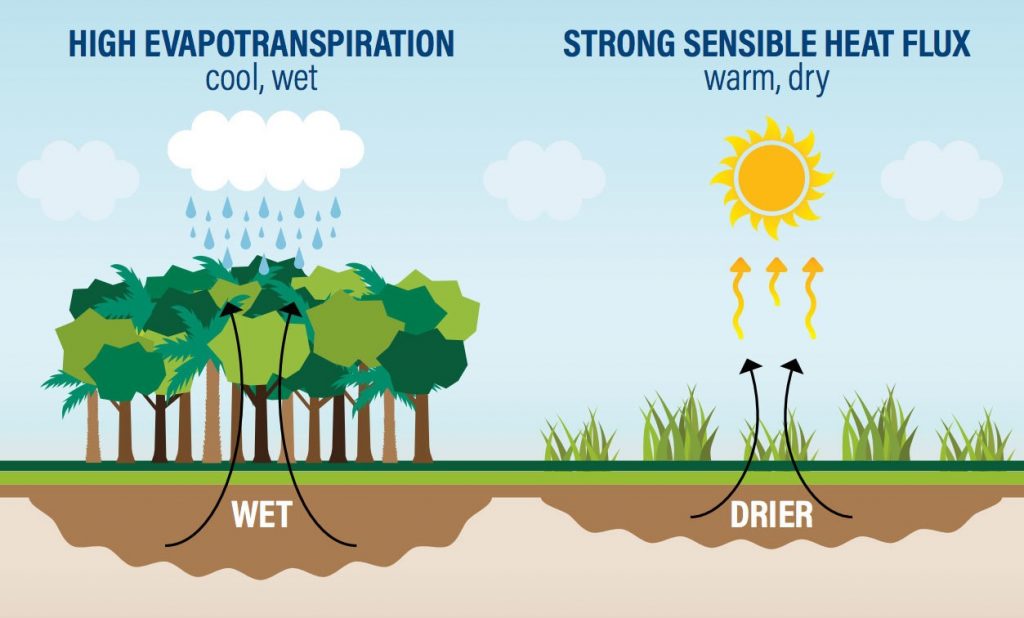Evapotranspiration from the Amazon rainforest releases nearly 5 cubic miles of moisture into the air, which is more than the daily discharge of the Amazon River itself. This release of moisture is them moved by winds leading to the term ‘rivers in the sky’.
The interiors of continents often get most of their precipitation from water that has been rained out and recycled back into the air several times in a precipitation cascade following the winds. The further inland, the more dominant this recycling becomes. Some of the recycling is straightforward evaporation from lakes, rivers, or wet soil. But much of it is fast-tracked by plants, and especially trees. Tree roots tap moisture from deep in the soil. This circulation system is driven by releases of moisture into the air through their leaves via transpiration. By one estimate, the planet’s land vegetation recycles 48 cubic miles of water each day. Traditionally, people have said areas like the Congo and the Amazon have high rainfall because they are located in parts of the world that experience high precipitation. But the forests cause the rainfall, and if they weren’t there the interior of these continental areas would be deserts.
Image by World Resources Institute
Large tracts of forest (most notably the Amazon and the Congo) have a huge effect in creating precipitation in the skies above them and that moisture generates rainfall thousands of miles away. It is now thought that deforestation of the Congo basin could effect the River Nile. Most of the Nile’s flow begins in the Ethiopian highlands, and recent research suggests that much of the rainfall in this area comes from moisture recycled by the forests of West Africa, especially the jungles of the Congo basin, and may provide as much as 30 to 40 percent of the total annual rainfall in the Ethiopian highlands. There are treaties governing river flows in most rivers that cross international borders. But the rivers of moisture in the atmosphere are rarely measured and never governed. Egypt and Ethiopia have spent years working toward an agreement on managing water flows in the Nile. But a deal on sharing the water will be pointless if rains falter in the Ethiopian highlands because of deforestation in the distant Congo basin.
Read more in this excellent, well written article

